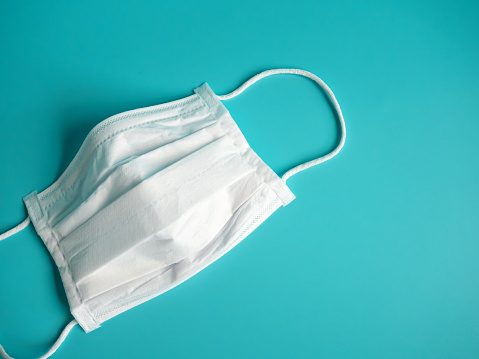More and more states and businesses are mandating the wearing of masks, and with these orders comes a slew of misinformation and opinions about the face coverings. Here are some common myths about face masks you should be aware of.
Mask Myth No. 1: Masks aren’t necessary if you feel fine
While this was true at the beginning of the pandemic, things have changed. Experts now understand that masks add an extra layer of protection against the spread of COVID-19. Experts also now understand more about how the virus spreads via respiratory droplets from coughing, sneezing and even talking or singing. In addition, we now know that someone can have coronavirus, be asymptomatic and still infect others.
Mask Myth No. 2: Wearing a mask will negatively affect my health
If you’ve been on social media at all during the pandemic, you’ve likely seen the misinformation that wearing a cloth face mask increases the amount of carbon dioxide you inhale, which can lead to unpleasant physical symptoms. The Cleveland Clinic points out that while inhaling large amounts of carbon dioxide is dangerous, this won’t happen when wearing a cloth face covering especially if you’re only wearing it for a short period of time like a trip to the store.
It’s important to note though that certain groups of people shouldn’t wear cloth face coverings. These include children under 2 and anyone who has trouble breathing or is unable to remove a face mask on their own.
Mask Myth No. 3: Your mask just needs to cover your mouth
To be effective at protecting you and others, your mask should cover your mouth and nose. It should feel snug, but comfortable and you should still be able to breathe without issue.
Mask Myth No. 4: If I have a mask on, social distancing isn’t necessary
Wearing a mask is just one step in slowing the spread of COVID-19. You should still practice social distancing and handwashing. Remember to stay 6 feet apart from others and limit in-person meetings.
Mask Myth No. 5: Your mask protects you from getting infected with coronavirus
A subject of debate is that wearing a cloth mask does nothing to protect you from getting infected with COVID-19. While there isn’t a lot of research yet on how well masks protect against infection, scientists think a mask may reduce your risk of infection. What’s a more likely scenario though, is that wearing a mask will keep a sick person from spreading the virus. And because we know that asymptomatic people can spread the virus, it’s important we all wear one regardless of how we feel.
Mask Myth No. 6: You don’t need to wear a mask outdoors because sunlight kills COVID-19
It’s still possible to get infected with COVID-19 while outdoors. Being exposed to sunlight does not immediately kill the virus. A study recently confirmed 90% of the virus is inactivated after being exposed to sunlight for anywhere between 11 to 34 minutes in the midday summer sun.
It’s important to note though, that the sunlight study only applies to surfaces containing the virus. Human to human transmission is still a risk if you’re unable to be socially distant.
Mask Myth No. 7: You need an N95 mask to effectively limit virus transmission
While N95 masks are effective and necessary for healthcare workers, for the general public, simply wearing a cloth mask will be effective in limiting virus transmission. That’s because cloth face coverings limit the number of respiratory droplets spread into the air when an infected person coughs, talks or sneezes.










